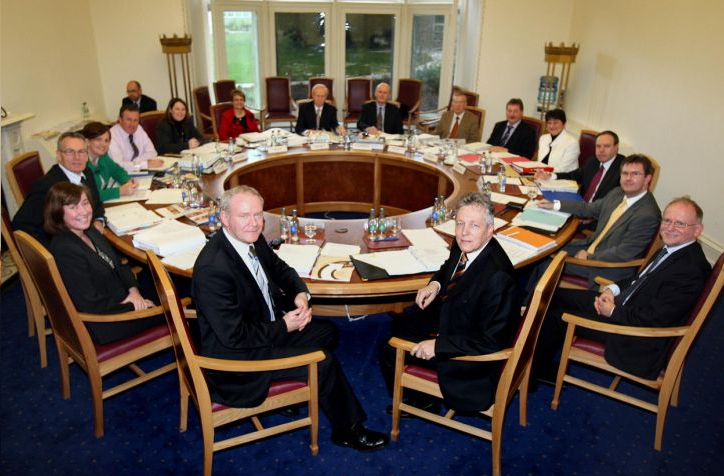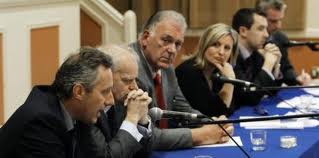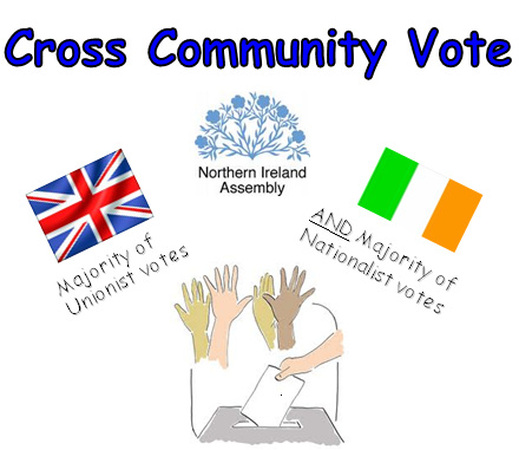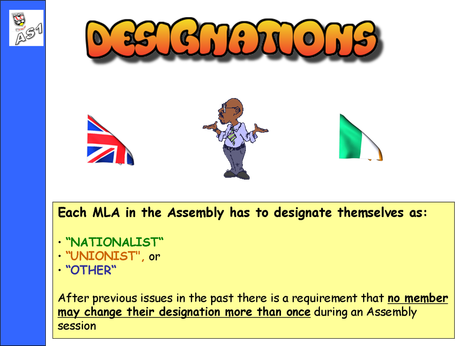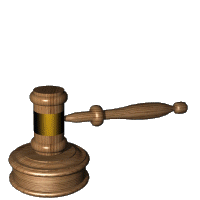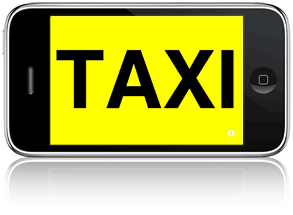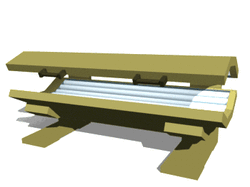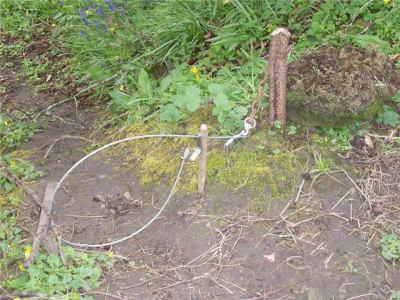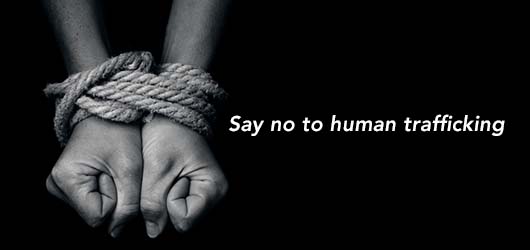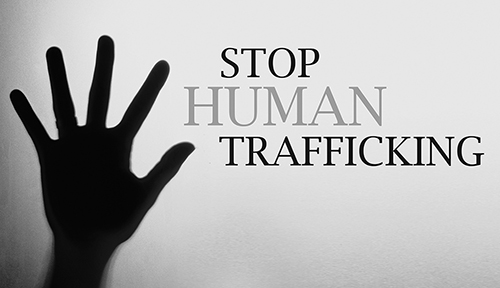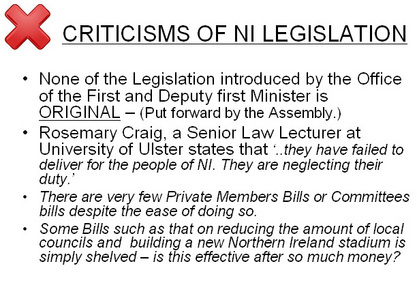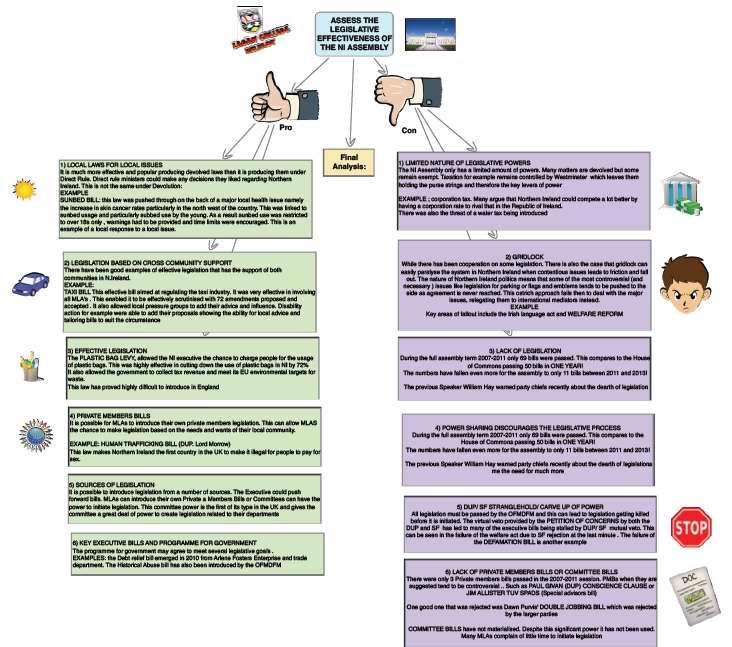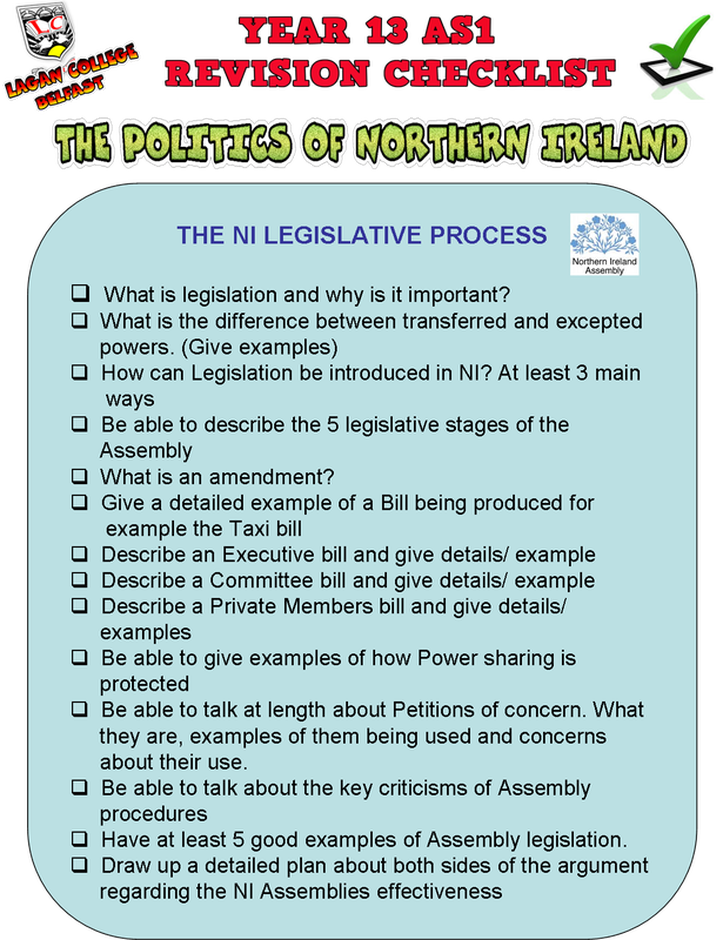THE LEGISLATIVE (LAW) MAKING PROCESS IN THE NI ASSEMBLY
The business of LAW MAKING - producing legislation - is very important and has to be done correctly. After all, people will have to abide by the Laws put in place. Businesses, hospitals, schools, the young and elderly may be effected by what MLA's decide. People may even go to jail over Laws decided at Stormont!
Therefore the process of law making is very thorough.
Therefore the process of law making is very thorough.
LEGISLATION can be introduced through 4 ways:
|
2. EXECUTIVE BILLS
These are bills introduced by MINISTERS. Most bills come from these. The Programme for Government also has legislative proposals for the upcoming year.
|
SEE FURTHER DETAILS BELOW
|
There are several stages of a BILL (A proposed Law)
You must have a good understanding of this process. |
|
These set of Youtube videos provide a very good overview of the work of the Assembly. They have lots of information on the workings of the Assembly ; the role of the Speaker ; Committees ; Executive and especially the legislative role- It is particularly good at talking through the passage of the TAXI BILL which could prove an excellent case study for you
|
|
|
|
|
|
HOW A BILL BECOMES LAW
How a Bill becomes Law from NI Assembly on Vimeo.
Assembly Extra - Programme 1 from NI Assembly on Vimeo.
There are FOUR types of BILL that can be introduced in Northern Ireland.
1. EXECUTIVE BILL
2. COMMITTEE BILL
3. PRIVATE MEMBERS BILL
4. PRIVATE BILL
The vast majority of bills in Northern Ireland have been Executive bills
1. EXECUTIVE BILL
2. COMMITTEE BILL
3. PRIVATE MEMBERS BILL
4. PRIVATE BILL
The vast majority of bills in Northern Ireland have been Executive bills
These are bills introduced by EXECUTIVE MINISTERS. Most bills originate here.
The Programme for Government has legislative proposals for the upcoming year.
GOOD FACTS:
DETAILS:
The Programme for Government has legislative proposals for the upcoming year.
GOOD FACTS:
- A total of 41 Bills have been introduced to the Assembly by Ministers
- Of these 30 have passed and are now Acts of the Northern Ireland Assembly
DETAILS:
- Nine bills are currently going through the legislative process
- Two did not progress through all the stages: the Environment Minister withdrew a Planning Bill and the Education Minister’s Education Bill (to set up single all-encompassing Education Skills Authority) did not get beyond its Committee Stage which was completed in April 2013. The Education Minister later introduced another, less ambitious, Bill to combine the 5 Education and Library boards into one. This was passed and received Royal Assent in December 2014.
- The Welfare Reform Bill has stalled. The Bill was not moved to Final Stage on 9th March 2015, as Sinn Féin, with support from the Green Party and 2 Alliance Members submitted a Petition of Concern which would have caused the Bill to fall.
- The Bill with the greatest number of amendments is the current Reservoirs Bill. Over 200 amendments were tabled at Consideration Stage after the Agriculture Committee raised a number of concerns during Committee Stage. The Minister agreed to amend the Bill. There will a further opportunity to amend the Bill at Further Consideration Stage, so it may be altered further. Lord Morrow’s Human Trafficking Bill and the Environment Minister’s Local Government Bill were also heavily amended. Several bills have passed through the legislative process with no amendments, eg, all the budget bills (2 per year,) plus Off-Street Parking (Functions of District Councils).
COMMITTEE BILLS
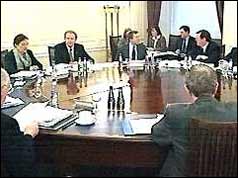
The COMMITTEES have this very important power in the NI Assembly to initiate their own legislation.
This is a very powerful element for NI Committees (UK Select Committees do not have this ability!) However, they have never fully taken this opportunity.
There are reasons for this.
PLEASE NOTE:
The FIRST SOLELY STATUTORY COMMITTEE BILL – the PUBLIC SERVICES OMBUDSMAN BILL - was introduced in this 2014-15 session, to create a single office for the purpose of dealing with complaints about public services.
This is a very powerful element for NI Committees (UK Select Committees do not have this ability!) However, they have never fully taken this opportunity.
There are reasons for this.
- They often complain that they are too busy amending legislation to have time to introduce some!
- They argue that they don't have the time, resources or manpower to initiate legislation.
- However, Committees realise that the expense and time involved in drafting legislation is too much and therefore they aim to have their Minister accept the necessity of the bill so the department will use its resources to push it through more effectively and efficiently.
PLEASE NOTE:
The FIRST SOLELY STATUTORY COMMITTEE BILL – the PUBLIC SERVICES OMBUDSMAN BILL - was introduced in this 2014-15 session, to create a single office for the purpose of dealing with complaints about public services.
- The OFMdFM Committee did ask OFMdFM to initiate legislation in this area. When it said no, the Committee decided to do so themselves.
- The principles of the Bill will be debated at Second Stage on Monday 13th May 2015.
PRIVATE MEMBERS BILLS
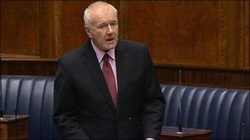
This is when MLA's are free to introduce their own Bills
This is relatively rare although there have been notable examples of Private Members Bills. They require cross community and Cross Party Support to succeed.
EXAMPLES:
This is relatively rare although there have been notable examples of Private Members Bills. They require cross community and Cross Party Support to succeed.
EXAMPLES:
- HUMAN TRAFFICKING AND EXPLOITATION BILL: Lord Morrow (DUP) This was introduced and widely supported by the assembly. It was SUCCESSFUL. It is quite innovative legislation and makes paying for sex illegal in Northern Ireland. It took many groups into account when piecing together this legislation including women'groups, charities and the sex industry.
- OTHERS:
- Pat Ramsey's Speed limits bill: 20 mph on residential roads (to be considered)
- Jo-Anne Dobson's Organ donation bill which will require you to OPT OUT instead of OPT IN to organ donation. SEE A FULL RANGE BELOW:
PRIVATE BILLS

These are simply Bills to change the law applying to individuals or companies
Trust and Cooperation are vital to the smooth running of the 'power sharing' Assembly. To prevent accusations of majority rule and to ensure protection of both 'communities,' several mechanisms are built in to the Northern Ireland Assembly which you have to be aware of :
|
A KEY DECISION is ... A decision which requires cross community support.
This is a majority of those members present and voting, including a majority of the Unionist AND Nationalist designations present and voting
60% of members present and voting, including at least 40% of each of the Nationalist and Unionist designations present and voting.
IMPORTANT CROSS COMMUNITY VOTES
|
The following is a flash image which cannot be viewed on Apple products unfortunately
NOTE: The Assembly and Executive Review Committee considered the issue of Petitions of Concern because of concern that the procedure was being overused and not always in the spirit of the 1998 Agreement. The issue was also on the agenda for the Stormont House Agreement talks.
EXAMPLES:
|
|
Good detailed explanation. Best from about 7 minutes in.
|
|
|
As we have previously seen, appointments made by the Assembly are selected using the D'hondt mechanism whereby a mathematical formulas is used to divide out positions as fairly and equitably as possible.
|
|
PETITIONS OF CONCERN were designed to safeguard both communities by acting as an effective VETO on an issue of concern to 1 community.
HOWEVER, there has been growing concern that the device is being overused and indeed abused:
THERE IS CURRENTLY A WIDE RANGING ASSEMBLY REVIEW INTO THE USE OF PETITIONS OF CONCERN - LOOKING INTO ITS USE AND POSSIBLE REFORM |
D'hondt was hailed as the magical medicine to create Cooperation between those who could never cooperate! There have been criticisms that the divisions in the Assembly are as deep as ever they were. The icy relationship between the First and Deputy First Minister is sometimes clear for all to see, particularly after a political spat like the Maze, Castlederg or flags
Committees too suffer from the ambiguous nature of having to help and scrutinise their Ministers. This does not come easy to party faithful's who have no intention of helping the 'enemy'
Committees too suffer from the ambiguous nature of having to help and scrutinise their Ministers. This does not come easy to party faithful's who have no intention of helping the 'enemy'
|
While the safeguards were set as a well meaning mechanism to prevent abuse of one community over another, Alliance has always argued that the designation of 'Unionist, Nationalist or 'other' simply fosters the old divisions. They believe that designations and cross community votes simply entrench sectarianism and prevent progress
|
1) THE TAXIS BILL (Northern Ireland Assembly Legislation)
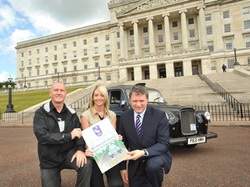
- This was introduced in 2007/08.
- It regulated the taxi industry. (Regulate simply means giving it 'rules' and standards which it has to abide by.)
- Taxis for example MUST be registered and Licensed. This prevents anyone being a taxi driver which obviously has dangerous implications. Taxis themselves also have to be maintained.
- A system of Fair Fares limits how much taxi drivers can charge to protect the public.
- The Consumer Council (an independent organisation) was recommended by Committee as a regulator to manage complaints.
*** It is worth noting that in producing this legislation the ENVIRONMENT COMMITTEE produced over 70 changes to the initial bill after consulting the various interested parties (or stakeholders) ***
2) THE WILDLIFE AND NATURAL ENVIRONMENT BILL (NI Assembly Legislation)

- This was introduced in 2009/10.
- It aimed to give Northern Ireland its own Biodiversity Laws.
- This included controlling hunting and gaming licenses and creating several areas of Special Scientific Interest - which gives special protection to areas of natural beauty or scientific interest.
Again it is worth noting that in committee consultation the ENVIRONMENT COMMITTEE took written evidence from 35 organisations (Stakeholders) and heard oral evidence from 9 of them.
- STAKEHOLDERS included: The Environmental lobby ; animal rights campaginers ; sports enthusiasts; deer hunters and land owners
- Legislators have to take all these opinions into account when making a law - no matter how diverse they are.
- This led to several changes including several more bird types whose nest sites would be protected ; adding two types of seal to the protected list and protecting Basking Sharks. These changes were accepted by the Minister at Committee stage.
- The Minister refused to put a ban on all Snares (a type of trap for animals) BUT they did compromise on allowing snares - but under license (Good example of Committee - Minister compromise)
3) THE SUNBEDS BILL 2011 (N I Assembly Legislation)

- This was introduced in 2010/11.
- It aimed to give Northern Ireland its own REGULATION (Control) of sunbeds.
- This included controlling their use, including an age limit and ban of under 18's
- This was due to a major rise in skin cancer in Northern Ireland.
The HEALTH COMMITTEE received 30 written submissions and took oral evidence from 5 key stakeholders.
The evidence was overwhelmingly in favour of the Bill.
Key amendments included controlling those who sell or hire sunbeds and licensing of premises.
It was also suggested that information must be communicated with users of sunbeds.
Increased fines for those breaching the regulations
4) HOUSING (Amendment) BILL (Northern Ireland Assembly Legislation)

- This was introduced in 2009/10.
- It was dealt with by the Social Development committee.
- This aimed to add controls and regulation on Houses with Multiple occupancy.
- This simply means that houses in Northern Ireland with large amounts of people MUST follow certain rules and regulations.
- This was drawn up essentially to protect immigrant communities who were suffering very poor housing conditions and overcrowding. Landlords would have to follow guidelines or a £20,000 fine would be imposed!
- Tenants of rented housing would also be given longer notice before having to leave.
- Anti social tenants will also be dealt with by the courts.
- Homelessness prevention information is to be made available
5) LICENSING AND REGISTRATION OF CLUBS (Amendment) BILL (Northern Ireland Assembly Legislation)

- Lagan pupils witnessed this one being produced on their Stormont visit
- This was introduced in 2010.
- This allows police to shut down noisy or troublesome pubs/clubs
- It introduced a Proof of age scheme and penalty point system for clubs/pubs.
- It limits late licenses
- Amendments were later added by the Committee included new measures to curb irresponsible drinks promotions - such as all you can drink promotions. It also aimed to curb cheap drink on offer in off licenses.
- AT PRESENT THERE IS ALSO PROPOSED LEGISLATION TO IMPOSE MINIMUM PRICING FOR ALCOHOL TO TRY AND CURB UNDER-AGE DRINKING
- PROPOSALS HAVE ALSO BEEN PUT TOGETHER TO BAN SMOKING IN CARS TO PREVENT CHILDREN PASSIVE SMOKING
6) PLASTIC BAG LEVY (2013)
|
One of the most noticeable pieces of recent legislation is the 5p plastic bag levy (tax)
|
7) HIGH HEDGES BILL 2011
|
This legislation has been introduced on a UK wide basis. It aims to protect house owners from excessively high hedges which block out sunlight and obscure views
The Environment committee in the Assembly passed this but with an amendment that if a person had to complain to the council and was successful regarding a high hedge issue, they should be allowed to claim their money back. |
8) WILDLIFE AND NATURAL ENVIRONMENT BILL (2008/9)
|
This led to the protection of several species of birds whose nesting sites were protected.
The issue was over the use of SNARES in Northern Ireland
|
PROPOSED EDUCATION BILL
The aim of this bill was to amalgamate the 5 existing education boards in Northern Ireland into one single Educational authority. This was aimed at reducing the colossal expense incurred through the duplication of resources in an area with the population of a large English city.
However, vested interests and party differences have meant that this bill has been pushed from pillar to post. It still shows no signs of being resolved.
However, vested interests and party differences have meant that this bill has been pushed from pillar to post. It still shows no signs of being resolved.
9) HUMAN TRAFFICKING AND EXPLOITATION BILL 2015
|
This is a great recent example of a successfully introduced piece of local legislation.
It was a Private Members Bill introduced by Fermanagh DUP MLA, Lord Morrow It primarily makes Northern Ireland the first country in the UK to make paying for sexual services illegal. This is a novel step and it is hoped that it will prevent the drive to traffic and exploit girls primarily from Asia and Eastern Europe who arrive in Northern Ireland every year and are forced into the vice industry. The Environment Committee, scrutinising this bill took many testimonies from stakeholders. (Example of Calling for Persons and Papers) This included interviewing workers in the sex industry, including a millionaire owner of a vice site. It also took testimony from women's groups and charities campaigning to end human trafficking. The bill did face sceptics. Many in the sex industry protested at the bill claiming that the law would simply make things a lot worse by driving the industry 'underground' and therefore out of the eyes of those who could help control and police it. The Bill was passed and is now in force |
|
|



